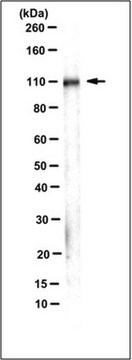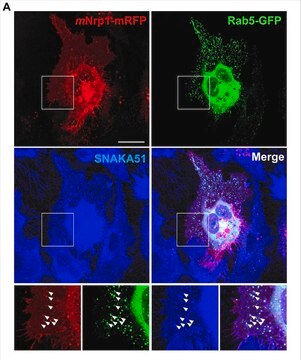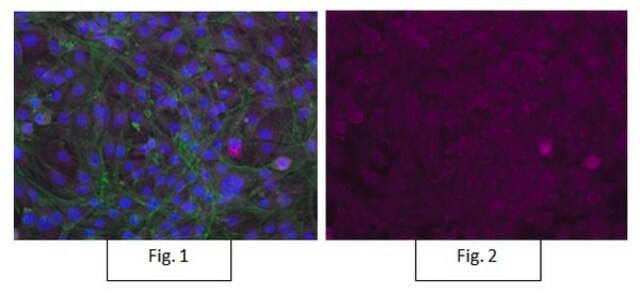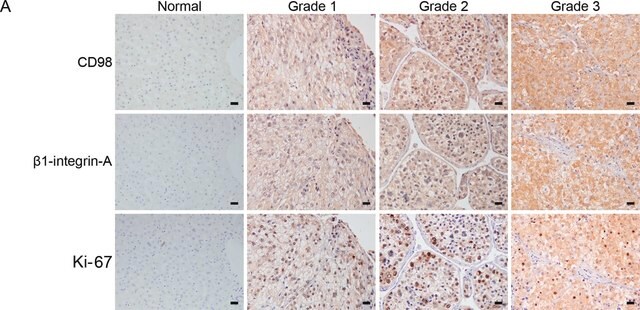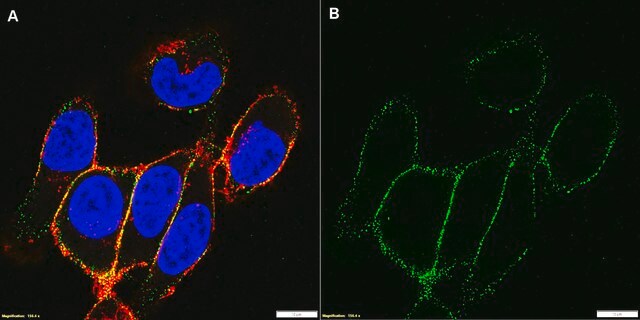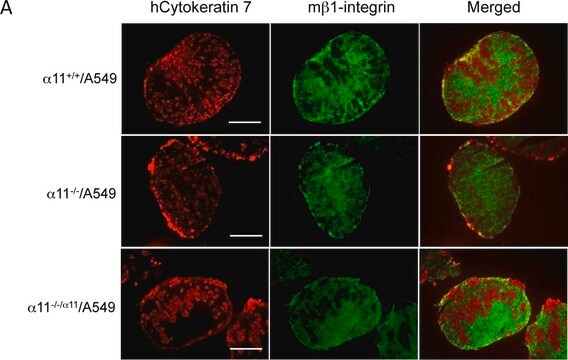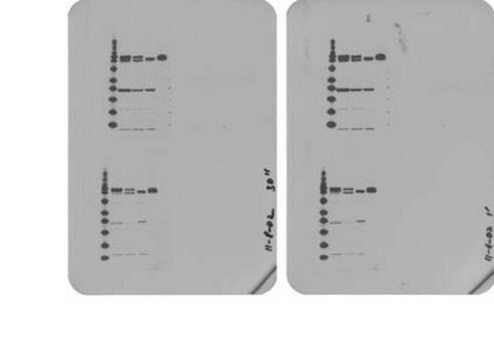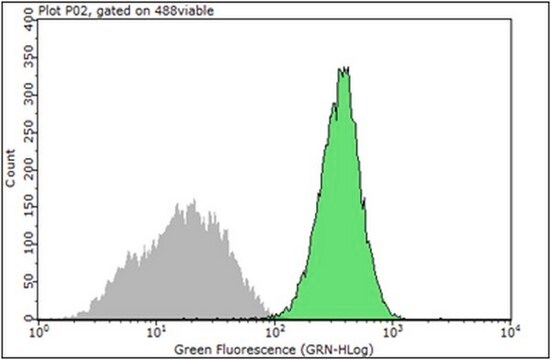MAB2079-AF488
Anti-Integrin β1 Antibody, activated, clone HUTS-4, Alexa Fluor™ 488 Conjugate
clone HUTS-4, from mouse, ALEXA FLUOR™ 488
Synonym(s):
Integrin beta-1, Integrin β1, activated, Fibronectin receptor subunit beta, Glycoprotein Iia, GPIIA, VLA-4 subunit beta, CD29
About This Item
Recommended Products
biological source
mouse
Quality Level
conjugate
ALEXA FLUOR™ 488
antibody form
purified antibody
antibody product type
primary antibodies
clone
HUTS-4, monoclonal
species reactivity
rat, mouse, human
technique(s)
immunocytochemistry: suitable
isotype
IgG2a
NCBI accession no.
UniProt accession no.
shipped in
wet ice
target post-translational modification
unmodified
Gene Information
human ... ITGB1(3688)
General description
Specificity
Immunogen
Application
The unconjugated antibody (Cat. No. MAB2079Z) is shown to be suitable also for Western blotting, ELISA, functional assay, and immunohistochemistry.
Cell Structure
Adhesion (CAMs)
Quality
Immunocytochemistry Analysis: A 1:100 dilution of this antibody detected Integrin β1 in HeLa cells.
Target description
Physical form
Storage and Stability
Other Notes
Legal Information
Disclaimer
Not finding the right product?
Try our Product Selector Tool.
Storage Class Code
12 - Non Combustible Liquids
WGK
WGK 3
Flash Point(F)
Not applicable
Flash Point(C)
Not applicable
Certificates of Analysis (COA)
Search for Certificates of Analysis (COA) by entering the products Lot/Batch Number. Lot and Batch Numbers can be found on a product’s label following the words ‘Lot’ or ‘Batch’.
Already Own This Product?
Find documentation for the products that you have recently purchased in the Document Library.
Our team of scientists has experience in all areas of research including Life Science, Material Science, Chemical Synthesis, Chromatography, Analytical and many others.
Contact Technical Service